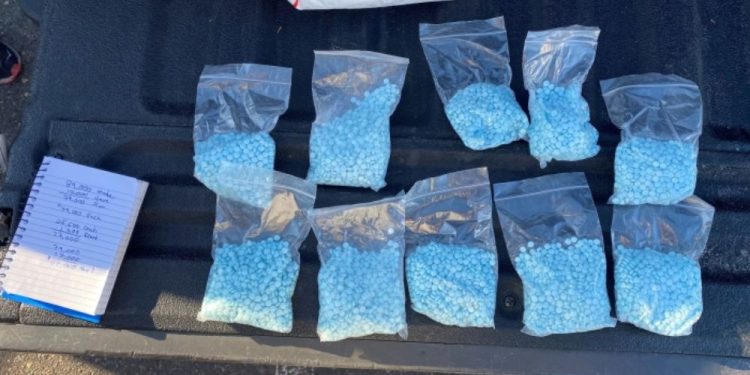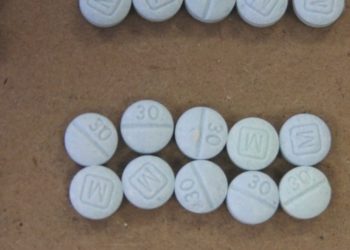Two Honduran nationals accused of running fentanyl trafficking operations in Oregon have been extradited to the United States and are now facing federal charges in the District of Oregon.
Extradition and Court Appearance
This Article Includes
Teodoro Rodas Dubon, 32, and Erick Yojan Lopez Miralda, 38, appeared in federal court in Portland on September 16 following their extradition from Honduras. Both men pleaded not guilty to conspiracy counts relating to fentanyl distribution.
A federal judge mandated the men’s detention until their jury trials, scheduled to commence in November.
U.S. Attorney: ‘Relentless Pursuit’ of Traffickers
Federal officials described the extraditions as part of a larger campaign to battle fentanyl trafficking, which has ravaged communities across Oregon and the country.
“Rodas Dubon and Lopez Miralda’s extraditions to the District of Oregon send a critical message: the United States will relentlessly pursue and hold accountable those involved in trafficking fentanyl,” said Scott Bradford, U.S. Attorney for the District of Oregon. “These cases reinforce our commitment to holding all individuals involved in illicit drug operations accountable for the devastating impact they’ve had in Oregon.”
Alleged Trafficking Operations in Portland
According to authorities, both men played key roles in separate but related fentanyl trafficking operations.
- Rodas Dubon is accused of directing and controlling the distribution of bulk quantities of fentanyl across the Portland area beginning in 2022. Authorities said his organization supplied large amounts of the powerful synthetic opioid before law enforcement disrupted the network. Following enforcement actions, Rodas Dubon returned to Honduras.
- Lopez Miralda allegedly ran a fentanyl distribution cell in Portland in 2023. Prosecutors said multiple kilograms of fentanyl were seized as part of investigations into his operation. Like Rodas Dubon, Lopez Miralda fled to Honduras after law enforcement dismantled parts of the network.
Honduran authorities detained both men in January 2025, and they remained in detention until their September 15 extradition to the United States.
Federal Agencies Respond
Law enforcement officials emphasized the international collaboration behind the extraditions, calling them critical in the fight against fentanyl trafficking.
“The DEA and our partners will aggressively pursue threats like these no matter where they come from,” said David Reames, DEA Special Agent in Charge. “Our mission is to protect our communities from the dangers of fentanyl, and this case shows that borders will not shield traffickers from accountability.”
The Fentanyl Crisis in Oregon
Oregon, like much of the United States, has seen a significant increase in fentanyl-related overdoses and deaths. Sometimes combined with other narcotics, the drug’s potency surpasses that of heroin or morphine, rendering even small dosages potentially fatal.
Local and federal officials have increased efforts to intercept fentanyl shipments, disrupt trafficking networks, and raise public awareness about the hazards of fentanyl-containing counterfeit tablets.
The arrests and extraditions of Rodas Dubon and Lopez Miralda are a significant step forward in those enforcement efforts, but officials warn that the struggle against fentanyl trafficking will continue.
Next Steps
Both men remain in federal detention in Oregon. Their jury trials are scheduled for November, when they will face conspiracy accusations that, if proven, may result in severe jail sentences.
Authorities underlined that the conclusion of these investigations will hold the accused accountable and serve as a warning to other traffickers who may seek to operate in Oregon.









